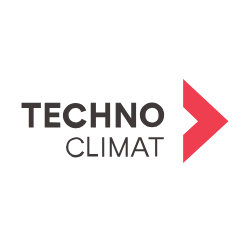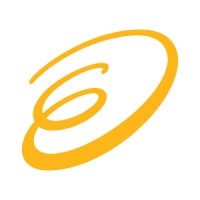
Open
MTRIC — INNOV-R
Last Update: October 27, 2025
QC, Canada
Targets collaborative industrial research to reduce GHG emissions
Partnering and Collaboration
Grant and Funding
At a glance
Funding available
Financing goals
Integrate new technologies
Develop a new product
Optimize production processes
See more
Eligible Funding
- Maximum amount : 1,500,000 $
- Up to 40% of project cost
Timeline
- Unspecified
Eligible candidates
Eligible Industries
- Mining, quarrying, and oil and gas extraction
- Manufacturing
Location
- Quebec
Legal structures
- For-profit business
Annual revenue
- All revenue ranges
Organisation size
- All organization sizes
Audience
- Startups
Overview
The INNOV-R program, with funding of up to $1,500,000 per project, supports collaborative industrial R&D initiatives that aim to reduce greenhouse gas emissions in Quebec. Eligible activities include research projects involving at least one company and one research organization, focused on innovative solutions to support the province’s low-carbon transition.
Activities funded
- Collaborative industrial research projects aimed at reducing greenhouse gas (GHG) emissions in Quebec.
- Initiatives that contribute to the development or implementation of technologies or processes supporting climate change mitigation in the industrial sector.
Examples of admissible projects:
$ 255,000
Integration of AI for optimizing metal transformation processes with a university
$ 325,000
Innovative extraction and recycling of critical minerals with a university
$ 200,000
Development of a new eco-friendly metal alloy involving McGill University
$ 275,000
Research on reducing GHG emissions in metal manufacturing with a university
$ 240,000
Development of digital innovations in metal processing with Université Laval
$ 250,000
Designing advanced metal recycling techniques with the University of British Columbia
Eligibility
- The project must involve at least one company and one research organization.
- The project must focus on industrial research aimed at reducing greenhouse gas (GHG) emissions in Quebec.
- The company must contribute a minimum percentage of the project's costs, which may partially be in-kind.
Who is eligible?
- Enterprises proposing collaborative industrial research projects
- Companies with projects that have potential to reduce greenhouse gas emissions in Quebec
- Organizations that can partner with a research institution
Eligible expenses
- Expenses directly related to the implementation of the collaborative industrial research project with potential for greenhouse gas emission reduction.
Eligible geographic areas
- Quebec
How to apply
1
Confirm eligibility and project stream
- Review the eligibility criteria for the INNOV-R program (collaborative industrial research with GHG reduction potential in Quebec)
- Select the appropriate application stream (Regular or Express)
- Ensure you meet the minimum requirements (minimum 1 company and 1 research organization, and minimum industrial contribution)
2
Prepare application documents
- Gather required documents and project information in line with funding criteria
- Ensure budget details reflect required industrial contributions and funding rates
- Obtain commitment from project partners (company and research organization)
3
Complete and compile application form
- Complete the application form as provided by the CRITM for the INNOV-R program
- Attach all supporting documents and detailed project description
4
Submit application to CRITM
- Submit the completed application form and supporting documents to the CRITM via the designated procedure (e.g., online portal or submission form)
5
Await results and respond to feedback
- Wait for confirmation of receipt and review process initiation from CRITM
- Respond promptly to any requests for additional information during the evaluation
Additional information
- The INNOV-R program is part of Quebec's Plan for a Green Economy 2030, funded by the Fonds d'électrification et de changements climatiques (FECC).
- Program administration is carried out by the Ministry of Economy and Innovation (MEI) and implemented through Sectoral Industrial Research Groups (RSRI), such as CRITM.
- There are two funding streams: the 'regular' and the 'express' pathways, each with specific contribution rates and maximum aid amounts.
- The 'express' pathway is exclusively funded by CRITM and does not allow co-financing.
Contacts
lstamand@critm.ca
QC, Canada
Apply to this program
Frequently Asked Questions about the MTRIC — INNOV-R Program
Here are answers to the most common questions about the MTRIC — INNOV-R. This section explains what the program is, how much funding is available, eligibility requirements, application deadlines, and other important details to help you determine if this grant is right for your business.
What is the MTRIC — INNOV-R?
How much funding can be received?
Who is eligible for the MTRIC — INNOV-R program?
What expenses are eligible under MTRIC — INNOV-R?
Who can I contact for more information about the MTRIC — INNOV-R?
Where is the MTRIC — INNOV-R available?
Is the MTRIC — INNOV-R a grant, loan, or tax credit?
Apply to this program
More programs like this

Grant and FundingOpen
ÉcoPerformance — Recommissioning of building mechanical systems
Gouvernement du QuébecFunding to optimize the operation of building mechanical systems

Loans and Capital investmentsOpen
Financing to respond to the offensive of new tariffs and for initiatives for resilient and exporting companies (FRONTIERE)
Investissement Québec (IQ)Supports Québec exporters impacted by new U.S. tariffs

Grant and FundingClosed
GHG Challenge Program - Industry
Environnement Québec (MELCC)Supports major industrial projects reducing greenhouse gas emissions

Grant and FundingOpen
Economic development program to help revitalize territories (DEPART)
Investissement Québec (IQ)DÉPART supports economic diversification and growth in targeted areas

Grant and FundingOpen
Innovative Projects Program
Hydro-QuébecSupports innovative, energy-efficient projects for multi-building developments

Grant and FundingOpen
Technoclimat
Environnement Québec (MELCC)Financial assistance for the demonstration of new technologies in Quebec

Partnering and CollaborationGrant and FundingExpert AdviceSuspended
Financial support to assess your energy use Hydro Quebec
Hydro-QuébecUp to $50,000 for energy performance analysis and optimization

Grant and FundingOpen
Enbridge Gas Quebec — Custom-made project
Enbridge Gas QuebecSupports energy-saving projects using natural gas in buildings

Tax CreditsOpen
Additional deduction for transportation costs for manufacturing SMEs
Revenu QuébecTax deduction for manufacturing SMEs' transportation costs in remote areas

Grant and FundingClosed
Renewable Natural Gas Production Support Program — Stream 1
Gouvernement du QuébecFunding for Renewable Natural Gas feasibility studies
Sign up to our platform to access the MTRIC — INNOV-R information sheet for free
Get access to 4,000+ programs, practical guides, personalized alerts, and an AI assistant to support your grant applications.